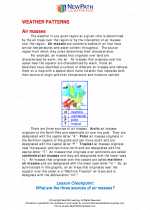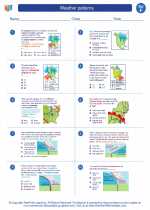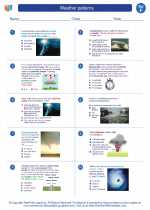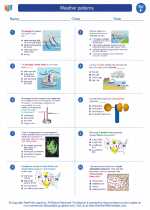Solid
A solid is one of the three main states of matter, along with liquids and gases. Solids have a definite shape and volume, and the particles in a solid are tightly packed together in a regular arrangement. This arrangement gives solids a fixed shape and prevents them from flowing like liquids or gases. Solids can be found in various forms, such as crystals, amorphous solids, and polymers.
Properties of Solids
- Definite Shape: Unlike liquids and gases, solids have a fixed shape and maintain their shape unless acted upon by an external force.
- Definite Volume: Solids also have a fixed volume, meaning they do not change their volume unless an external force is applied.
- Particle Arrangement: The particles in a solid are tightly packed together in an orderly arrangement, which gives solids their characteristic structure.
- Strength: Solids are generally strong and have a high resistance to deformation under applied stress.
- Melting Point: Solids have a specific temperature at which they melt and change from a solid to a liquid.
- Thermal Expansion: Like all forms of matter, solids expand when heated and contract when cooled.
Examples of Solids
Examples of common solids include:
- Metals such as iron, copper, and aluminum
- Minerals like quartz, diamond, and salt
- Non-metallic solids such as wood, plastic, and glass
- Organic solids like bone, teeth, and hair
Study Guide
When studying the topic of solids, it's important to understand the following key points:
- Describe the properties of solids and how they differ from liquids and gases.
- Discuss the arrangement of particles in a solid and how it contributes to the solid's properties.
- Explain the concept of melting point and how it relates to the transition from a solid to a liquid.
- Provide examples of common solids and their everyday uses.
- Explore the effects of temperature on solids, including thermal expansion and contraction.
Understanding the nature and properties of solids is fundamental to understanding the behavior of matter in the physical world.
[Solid] Related Worksheets and Study Guides:
.◂Science Worksheets and Study Guides Sixth Grade. Weather patterns
Study Guide Weather patterns
Weather patterns  Worksheet/Answer key
Worksheet/Answer key Weather patterns
Weather patterns  Worksheet/Answer key
Worksheet/Answer key Weather patterns
Weather patterns  Worksheet/Answer key
Worksheet/Answer key Weather patterns
Weather patterns  Vocabulary/Answer key
Vocabulary/Answer key Weather patterns
Weather patterns  Vocabulary/Answer key
Vocabulary/Answer key Weather patterns
Weather patterns  Vocabulary/Answer key
Vocabulary/Answer key Weather patterns
Weather patterns  Vocabulary/Answer key
Vocabulary/Answer key Weather patterns
Weather patterns 

 Worksheet/Answer key
Worksheet/Answer key
 Worksheet/Answer key
Worksheet/Answer key
 Worksheet/Answer key
Worksheet/Answer key
 Vocabulary/Answer key
Vocabulary/Answer key
 Vocabulary/Answer key
Vocabulary/Answer key
 Vocabulary/Answer key
Vocabulary/Answer key
 Vocabulary/Answer key
Vocabulary/Answer key

The resources above cover the following skills:
EARTH AND SPACE SCIENCE
Earth’s Systems
Integrate qualitative scientific and technical information (e.g., weather maps; diagrams; other visualizations, including radar and computer simulations) to support the claim that motions and complex interactions of air masses result in changes in weather conditions.